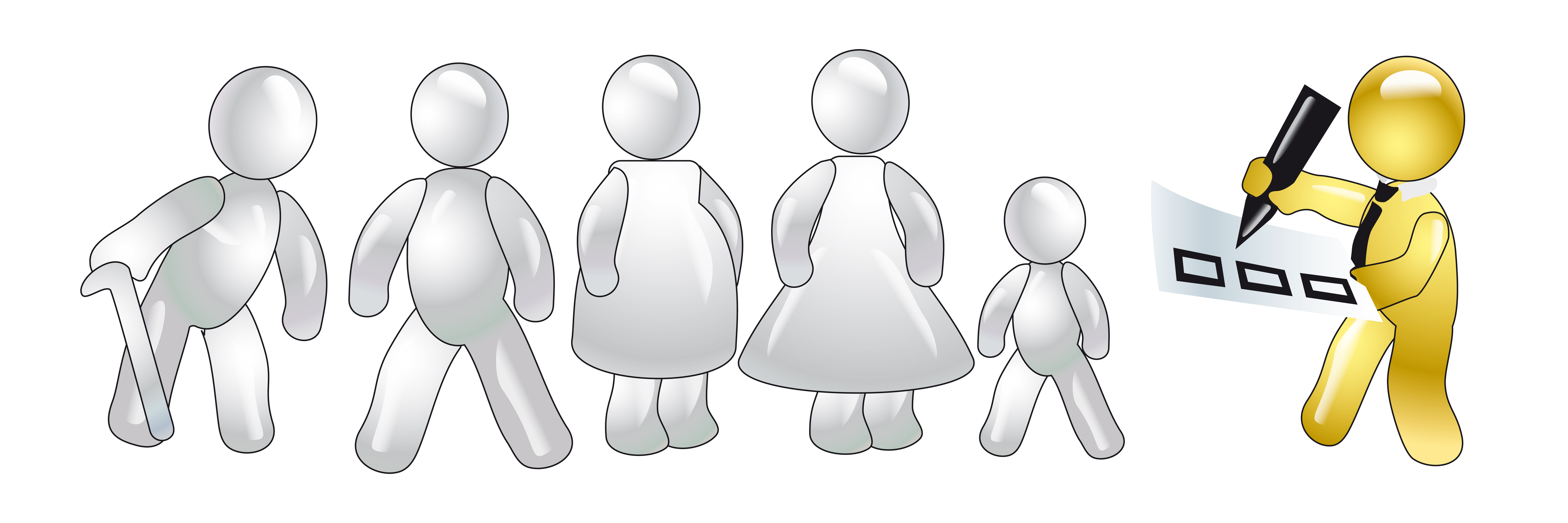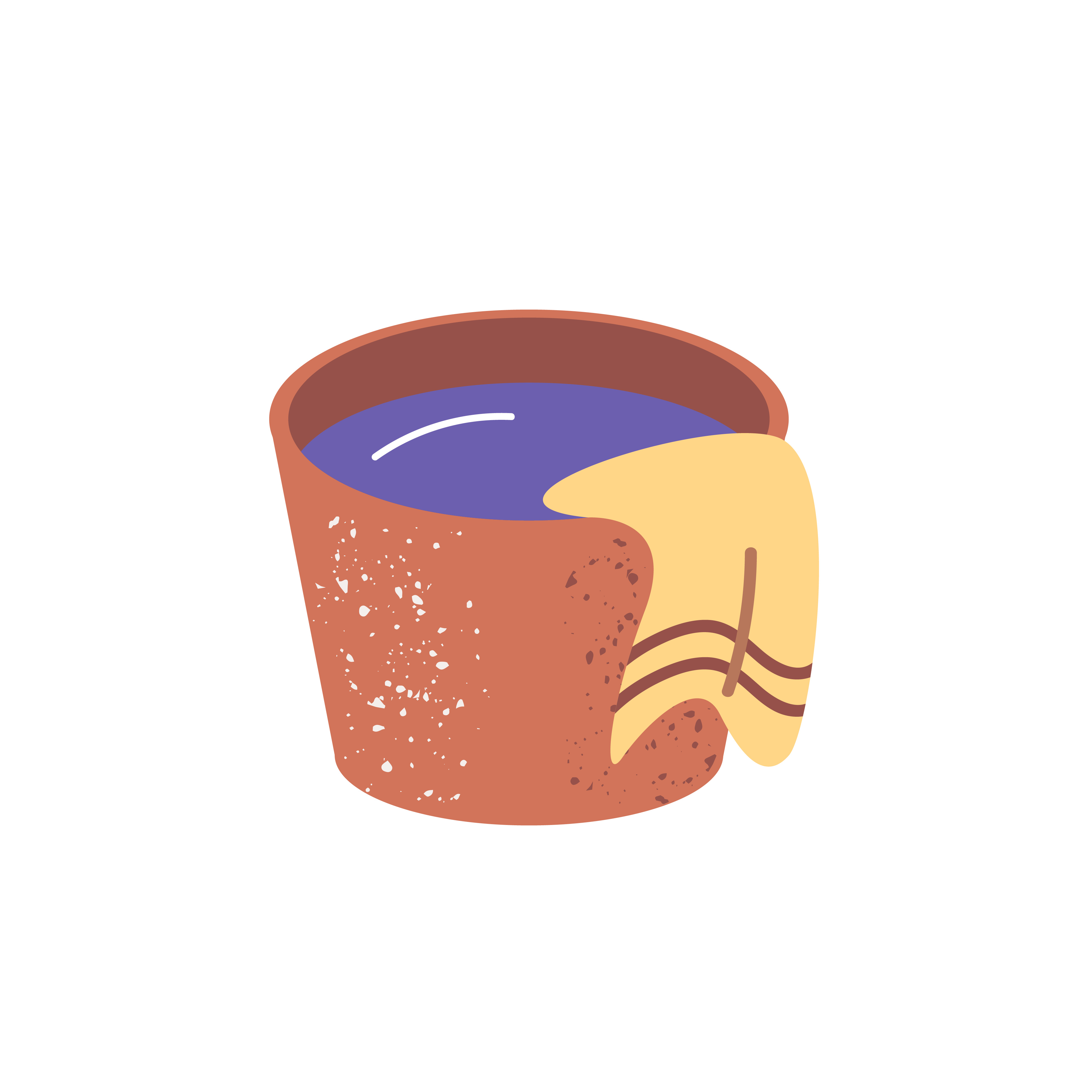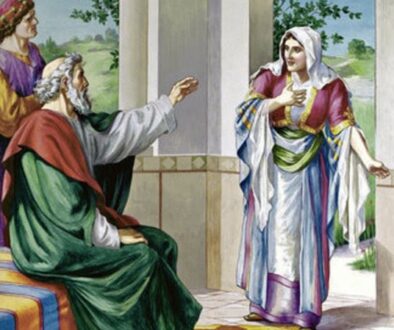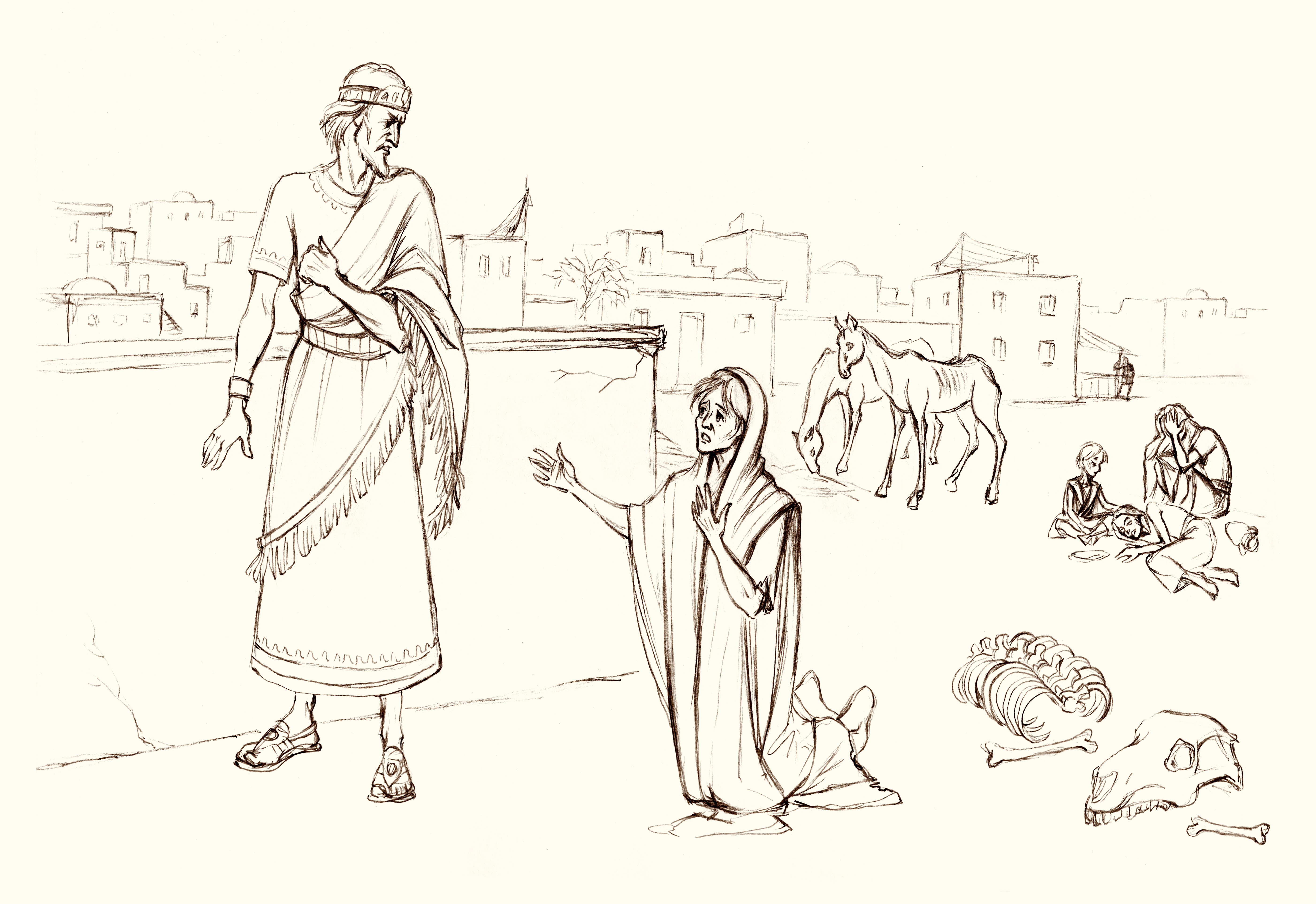2 Samuel 24 David’s Census

David wants to know how many fighting men he has left, so he sends Joab on a mission to count them. David’s census was a sin and it cost Israel dearly.
I’m skipping over 2 Samuel 23 for now. We will come back to it in a few days. Today, we will look at David’s second ‘big sin’. I’m counting all the sins that went into David’s taking of Bathsheba as ‘one sin’. He committed several during that ordeal, but they were all connected. This time, David’s sin will affect the whole land of Israel.
David decides, with a bit of prodding from Satan and allowance of that prodding by the Lord, to number the fighting men of Israel. This story is told in 1 Chronicles 21 as well. I will be combining these two accountings in our story.
We aren’t told exactly why he wanted these numbers, but he was adamant that they be gathered. He refused to be dissuaded from this course of action. He has Joab carry out the actual task.
When the numbers are finally in, God makes His displeasure known. And David gets to choose Israel’s consequences for his own actions. Let’s rejoin our story and see where the Spirit takes us.
♥ ♦ ♥
David is in his palace, looking out over the land one morning when he starts thinking about all the battles of the past and what might lay ahead. The Philistines have been quiet for two years now, but there is no guarantee that they will remain that way. David decided that it would be a good idea to know what his resources are, should battle break out again. For the first time ever in his life, David wants a headcount (census) of those he can rely on in a battle.
After making this decision, David goes to his throne room and calls for Joab. It doesn’t take long for Joab to appear in the doorway and David motions him forward.
“How may I serve you, my king” asks Joab.
“Go through all the tribes of Israel, from Dan to Beersheba, and number the people, that I may know the number of the people” (2 Samuel 24:2b)
Joab’s eyes go wide with surprise. Fear grips him and he tries to dissuade David from this path. “May the Lord your God add to the people a hundred times as many as they are, while the eyes of my lord the king still see it, but why does my lord the king delight in this thing?” (2 Samuel 24:3) “Are they not, my lord the king, all of them my lord’s servants? Why then should my lord require this? Why should it be a cause of guilt for Israel?” (1 Chronicles 21:3b)
David’s face hardens. “I need to know these numbers. It informs me of my resources that I may to draw from. This is important for deciding matters of war.”
Joab starts to open his mouth to protest again, but David’s look sucks the argument right out of him. “I will do as you command, my king” Joab finally says. Joab bows then turns and leaves David’s presence. He is not the least bit happy about David’s command, but David is his king and commander.
Joab takes six men with him and they begin a systematic search throughout all Israel. Most of the people are cooperative when Joab comes into their towns. But some were reluctant, remembering God’s command to Moses regarding taking a census, especially when Joab refused to collect a ransom from each.
“When you take the census of the people of Israel, then each shall give a ransom for his life to the Lord when you number them, that there be no plague among them when you number them” (Exodus 30:12).
David had not told Joab to collect a ransom, so he accepted no payments during his work. Joab continued his task, grudgingly, throughout all of Israel. Joab’s task lasted nine months and twenty days. During his counting, he counted all of Israel, but did not include the tribes of Benjamin or Levi in his report to David. He was angry with David for requiring such a count, as it was David’s idea instead of the Lord’s command. Joab felt David was acting prideful in his command, as a man was only to count what belonged to him. The people of Israel belonged to the Lord.
Joab finally stands before David with his report. It takes all his will to keep his face neutral. He is still angry over his task. “I have the census you required my king.”
“What did you find? How many warriors do I have at my disposal?”
“In Israel there are 800,000 valiant men who are able to draw the sword, and the men of Judah are 500,000.” Joab knows that this is not the full number. In his personal count, where Benjamin and Levi are included, his number is 1,100,000. He does not share this number with David.
“Good” replies David. “Your task is done. You may return to your duties.”
In the night, David started thinking over the numbers presented by Joab and the actual deed that had been done. In his spirit, he began to hear the Lord’s words to Moses regarding the census. David became heartsick when remembered the fullness of the Lord’s words. He had not had Joab collect a ransom from the people, and the numbering was for the Lord, NOT man. It was for the Lord to call forth, NOT man. David KNEW with all his being that he had sinned in this. He climbed from his bed and fell on his face in his room and cried out to the Lord.
“I have sinned greatly in what I have done. But now, O Lord, please take away the iniquity of your servant, for I have done very foolishly” (2 Samuel 24:10b). David trusted in the Lord’s forgiveness and mercy, so he waited for His answer.
As David prayed, the Lord begins speaking to Gad. He was David’s most trusted ‘seer’ and could be depended on to bring only the words that the Lord had given him.
“Go and say to David, ‘Thus says the Lord, Three things I offer you. Choose one of them, that I may do it to you’” (2 Samuel 24:12)
With the first rays of the morning, Gad goes to David. “The Lord has heard your prayer, but there is a consequence for your actions. The Lord is offering a choice of three things. You are to choose one. ‘Shall three years of famine come to you in your land? Or will you flee three months before your foes while they pursue you? Or shall there be three days’ pestilence in your land? Now consider, and decide what answer I shall return to Him who sent me’ (2 Samuel 24:13).”
David drops his head onto his chest. These are all dire consequences. The first two would require that Israel be at the mercy of man for her survival. For the final choice, Israel would rely solely on the mercy of the Lord. This difference is what made David’s decision for him. After choosing, he tells Gad his answer, and reason.
“I am in great distress. Let us fall into the hand of the Lord, for his mercy is great; but let me not fall into the hand of man” (2 Samuel 24:14).
Gad accepts David’s answer for the Lord. He will formally present it to the Lord, but he knows that God has already heard David’s choice. Israel lay at the mercy of the Lord.
That very day, men, women and children began to feel the judgment of the Lord. They fell ill with a sickness that gave no warning before striking them. It swept through the land and defied all efforts to cure it, and moved as if it was carried on the wind itself. Reports started coming in from all over Israel of deaths from this unknown disease.
David stayed on his face before the Lord the whole time of the Lord’s judgment. His heart ached for his people; the ones that were paying the penalty for his sin. David began to call out to the Lord, asking that HE receive the punishment and not the people. “Behold, I have sinned, and I have done wickedly. But these sheep, what have they done? Please let your hand be against me and against my father’s house” (2 Samuel 24:17b).
While David was praying, the angel of the Lord was working his way to Jerusalem, carrying the Lord’s judgment. Just before he reached out and struck Jerusalem, the Lord said to him; “It is enough; now stay your hand” (2 Samuel 24:16b).
The angel stopped in his attack at the threshing floor of Araunah Ornan, the Jebusite. When Araunah Ornan’s sons saw the angel they ran and hid themselves.
At that same moment, David lifted up his eyes and saw the angel as well. He knew the destruction that lay in his hand and he cried out again to the Lord. “Behold, I have sinned, and I have done wickedly. But these sheep, what have they done? Please let your hand be against me and against my father’s house” (2 Samuel 24:17b).
The Lord spoke to Gad and sent him to David. “Go up, raise an altar to the Lord on the threshing floor of Araunah the Jebusite” (2 Samuel 24:19), Gad said to David.
David immediately got up and hurried to his mule. He didn’t wait for his guards. They had to scurry to catch up to him. Together, they made their way out of Jerusalem and up to the threshing floor of Araunah Ornan.
Araunah Ornan looked down the hill and saw the king and his companions approaching him. He ran down to greet them and bowed before David. “Why has my lord the king come to his servant?” (2 Samuel 24:21a) asks Araunah Ornan
David touched him on the shoulder and said; “To buy the threshing floor from you, in order to build an altar to the Lord, that the plague may be averted from the people” (2 Samuel 24:21b).
Araunah Ornan was honored to be of service to David and his Lord. He said to David, “Let my lord the king take and offer up what seems good to him. Here are the oxen for the burnt offering and the threshing sledges and the yokes of the oxen for the wood. All this, O king, Araunah gives to the king” (2 Samuel 24:22-23a). Araunah was praying that David’s offering would be acceptable to the Lord. “May the Lord your God accept you” (2 Samuel 24: 23b).
David would not accept this gift. It would not be his sacrifice if it was merely a gift from Araunah. “No, but I will buy it from you for a price. I will not offer burnt offerings to the Lord my God that cost me nothing.”
Araunah was grateful for his king’s insistence on purchasing the property. David insisted on paying full price for all that he received from Araunah. David paid 600 shekels of gold for the property and 50 shekels of silver for the oxen and all the property for the sacrifice.
David used the threshing stone as the base of his altar. He broke up the harnesses and used them for the wood. Then he had Gad offer the oxen and a grain offering on this altar to the Lord. These were a peace offering to the Lord. David would not presume to offer the sacrifice himself, lest he anger the Lord again.
The Lord showed mercy to both David and all of Israel by lifting the pestilence that He had sent to judge them. The number of those who died during this judgment was 70,000, besides women and children, throughout the whole land of Israel.
(to be continued)
I’m sure you noticed that I included the name given for this man in both 2 Samuel and 1 Chronicles. I have no doubt that it is the same man. He was probably known by some by one name and by others by the second. It could simply be his ‘first’ and ‘second’ names, or something others called him. My dad is known by most as Pete, where his given name is Herman. If someone were to tell a story about him, they would use whichever name they knew him by.
I also included both prices quoted as being paid to the owner of the threshing floor. I believe the higher price was for the property/land, while the lower was for the supplies. David gladly paid FULL price for everything he took for the offering to the Lord.
Did you notice that “pestilence” is exactly the punishment quoted to Moses for not receiving a “ransom” from each person when counted? David chose what God had already ordained for his sin. Did God have this day in mind when He gave this statute to Moses? It wouldn’t surprise me if he did.
When telling the story, I weaved in some of the rational for God calling David’s actions sin. I received a better understanding of God’s reasoning for the judgment by watching GotQuestions presentation of an answer concerning these events. I invite you to click on the link and check it out for yourself.
Father God, not all my questions are answered concerning this story, but what I do know is that I trust You completely. You had Your reasons for all that transpired, and I KNOW that they are good and just. When I see You face to face, I may ask more questions. But for today, I will simply trust You.
My husband is going through some trials. I KNOW that they are not a ‘punishment’ from You, but I also KNOW that You can use this to work things in both of our lives. I pray that the conclusion of this journey is complete restoration of what he has lost. I trust You no matter what.
As Shadrach, Meshach, and Abednego said, “Our God whom we serve is able to deliver us from the burning fiery furnace, and he will deliver us out of your hand, O king. But if not, be it known to you, O king, that we will not serve your gods or worship the golden image that you have set up” (Daniel 3:17-18) I trust You no matter what the outcome. We are both in Your hands.




